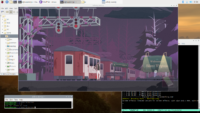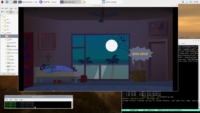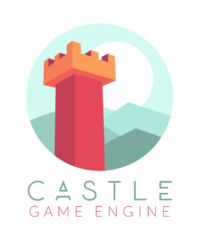 |
 |
 |
Recently I got my Raspberry Pi 4 device, and I am excited by the possibilities (small+cheap device with fully functional Linux). I was happy to see that Castle Game Engine runs perfectly on it 🙂 Here are some screenshots of The Unholy Society running on Raspberry Pi.
If you’re interested in using CGE on Raspberry Pi:
- Just install FPC using the package repository (
apt-get install fpc) -
Get CGE source code
-
Build CGE build tool running
castle_game_engine/tools/build-tool/castle-engine_compile.sh -
Build your application as usual, running
castle-engine compile. -
Raspberry Pi is just Linux OS + ARM CPU, rendering using OpenGLES. Everything just works, no surprises 🙂
-
It should also be possible to run Lazarus and CGE editor, although I didn’t do it yet.
-
Note that the default backend uses X. It is also possible to get CastleWindow backend using DispmanX (without X), although it is not yet merged into latest CGE.
Have fun with CGE on all your devices!

